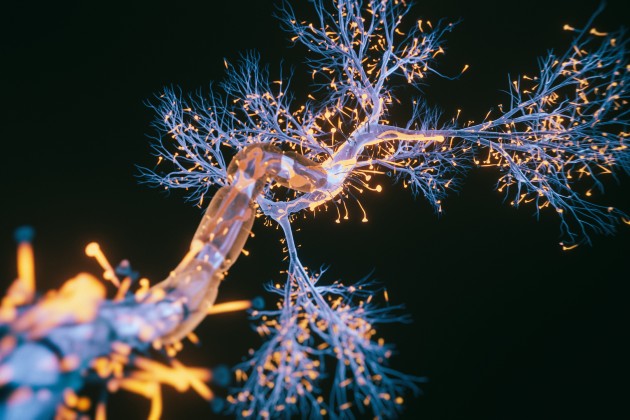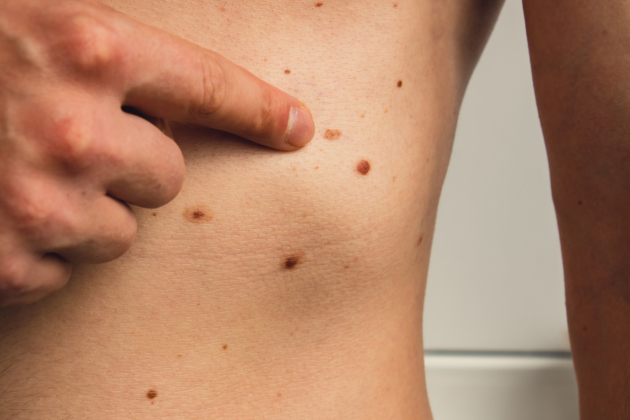“I like complex patients,” says nurse consultant Jan Clarke. “I like having to think and having to work to get the most out of a situation that’s changing rapidly.”
Jan, who works at the National Hospital for Neurology and Neurosurgery in London, specialises in motor neurone disease (MND), which she says some doctors describe as “the worst disease in medicine”.
MND is fast-progressing and terminal, with no cure. A third of people diagnosed with it will die within a year – more than half within two years.
“It’s characterised by increasing loss of function and loss of independence,” Jan says. “You’re increasingly reliant on carers, whether paid-for or family members, to support you in every activity of living.
“It’s a brutal disease and one of considerable loss and grieving for what’s been lost.”
Jan, England’s first MND nurse consultant and a member of the RCN Neuroscience Forum, is one of the expert contributors to a new RCN learning resource on MND. It was produced in partnership with the National Hospital for Neurology and Neurosurgery and the MND Association, with support from the forum.
There is no cure but you can help make each day a little bit better
Increase your knowledge
Working through the course, you can improve your awareness of red flags for diagnosis, symptom management and treatments. The resource also explores advanced planning and signposts to sources of further information.
Jan features in videos included within the resource, alongside patients describing the impact of the disease. One offers a very moving account of his reaction to being diagnosed. “I felt my whole world collapse,” he says. “The very first thing that’s ripped away from you is hope.”
And yet for all that, Jan says she never experiences overwhelming sadness in her job, something she attributes to her patients and her team. “The people you meet are great,” she says. “They make it easy for you in a way. And I work in a really strong team. We’re good at talking to each other about how things are.”
Of course, she says, there are days when she thinks “this disease is so brutal”. But she believes that if you ask any MND nurse why they work in such a challenging field, you’ll get the same response: because it’s a great job.
Plus, specialist teams can do a lot to help their patients. “People read that this is a disease where there is no cure, so they can feel given up on,” Jan says. “But there are lots of things where you can intervene to make each day a little bit better.”
Growing awareness
There remains, however, no realistic prospect of a cure for MND. “There’s no ‘Compound X’ that’s going to change the course of the disease,” says Jan.
But there is growing awareness. The Theory of Everything, a biopic based on the life of Stephen Hawking, charts the success of the renowned physicist and author alongside his physical decline as MND changes his life. Lead actor Eddie Redmayne worked alongside Jan’s team in preparation for the role.
Former Scotland international rugby union player Doddie Weir and Leeds Rhino rugby league star Rob Burrow are both living with MND and have done much to raise public understanding of its impact.
And the renowned Ice Bucket Challenge, which went viral on social media some years ago, originated in the United States as a means of increasing awareness of MND.
With awareness comes money for research. The MND Association funds research worth nearly £15 million, some directed at the causes of MND and potential new treatments, and some at better understanding of disease progression and improved standards of care.
Meanwhile, Jan hopes that the new RCN learning resource will offer nursing staff in all settings greater insight into MND.
“This is a fairly rare disease and you’re not expected to know everything about it,” she says. Knowing where to look for information and who to ask is sufficient.
Survival in MND has been shown to increase among patients who are known to a good multidisciplinary team (MDT), Jan adds.
“We’re an incredible group of people and we can do lots,” she says.
Find out more
The Annual Stephen Hawking Foundation MND Lecture aims to make the latest research freely available to improve practice and quality of life for people living with MND.
The lecture, supported by the Stephen Hawking Foundation and presented by the MND Association and RCN, is suitable for all health and social care professionals, students, patients and carers. This year it is being held online on the evening of 17 November 2021.








